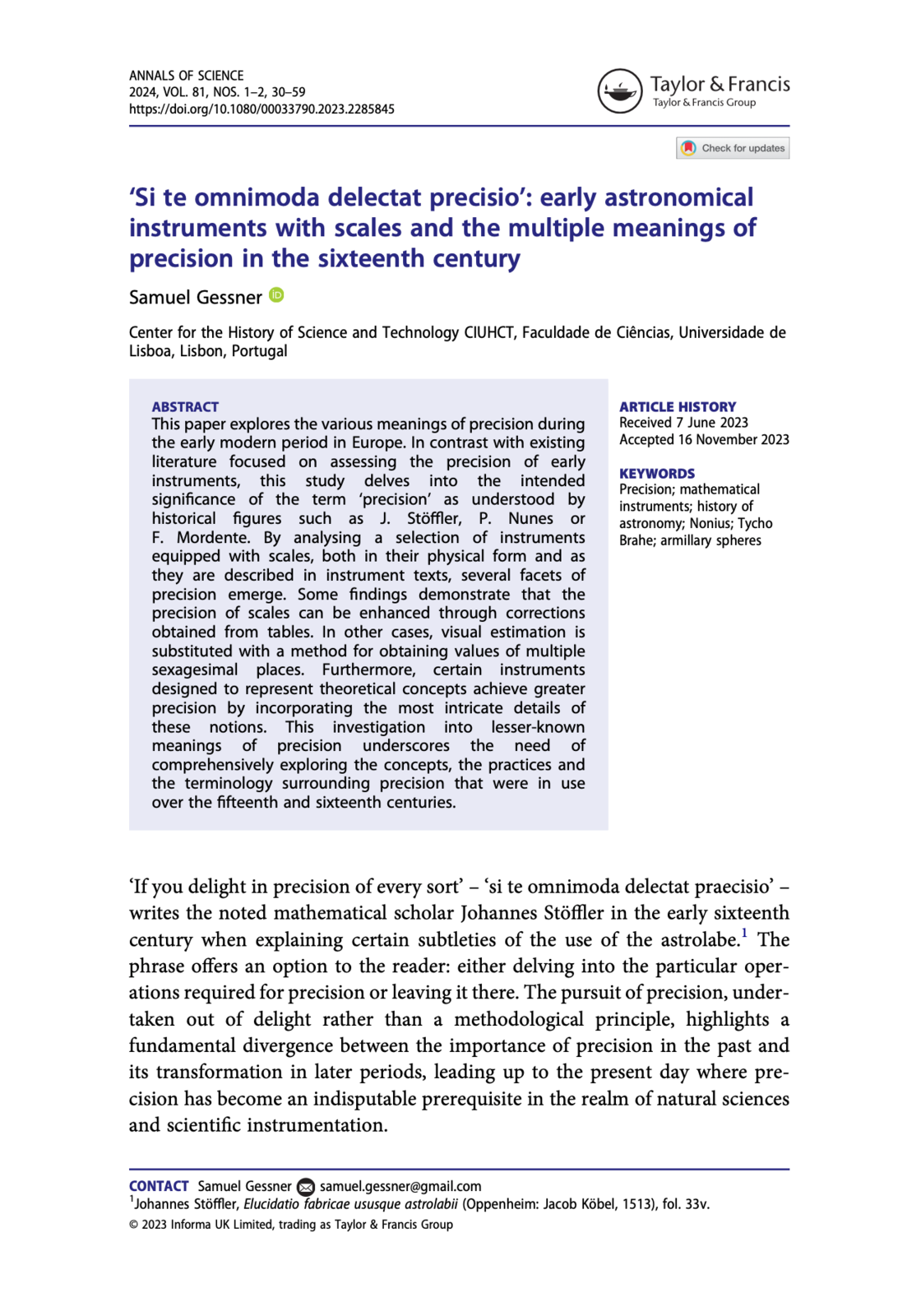‘Si te omnimoda delectat precisio’: early astronomical instruments with scales and the multiple meanings of precision in the sixteenth century
- Autoria
- Ano
- 2024
- Periódico
Annals of Science, 81:1-2
- Nº de Páginas
- 30-59

ABSTRACT
This paper explores the various meanings of precision during the early modern period in Europe. In contrast with existing literature focused on assessing the precision of early instruments, this study delves into the intended significance of the term ‘precision’ as understood by historical figures such as J. Stöffler, P. Nunes or F. Mordente. By analysing a selection of instruments equipped with scales, both in their physical form and as they are described in instrument texts, several facets of precision emerge. Some findings demonstrate that the precision of scales can be enhanced through corrections obtained from tables. In other cases, visual estimation is substituted with a method for obtaining values of multiple sexagesimal places. Furthermore, certain instruments designed to represent theoretical concepts achieve greater precision by incorporating the most intricate details of these notions. This investigation into lesser-known meanings of precision underscores the need of comprehensively exploring the concepts, the practices and the terminology surrounding precision that were in use over the fifteenth and sixteenth centuries.